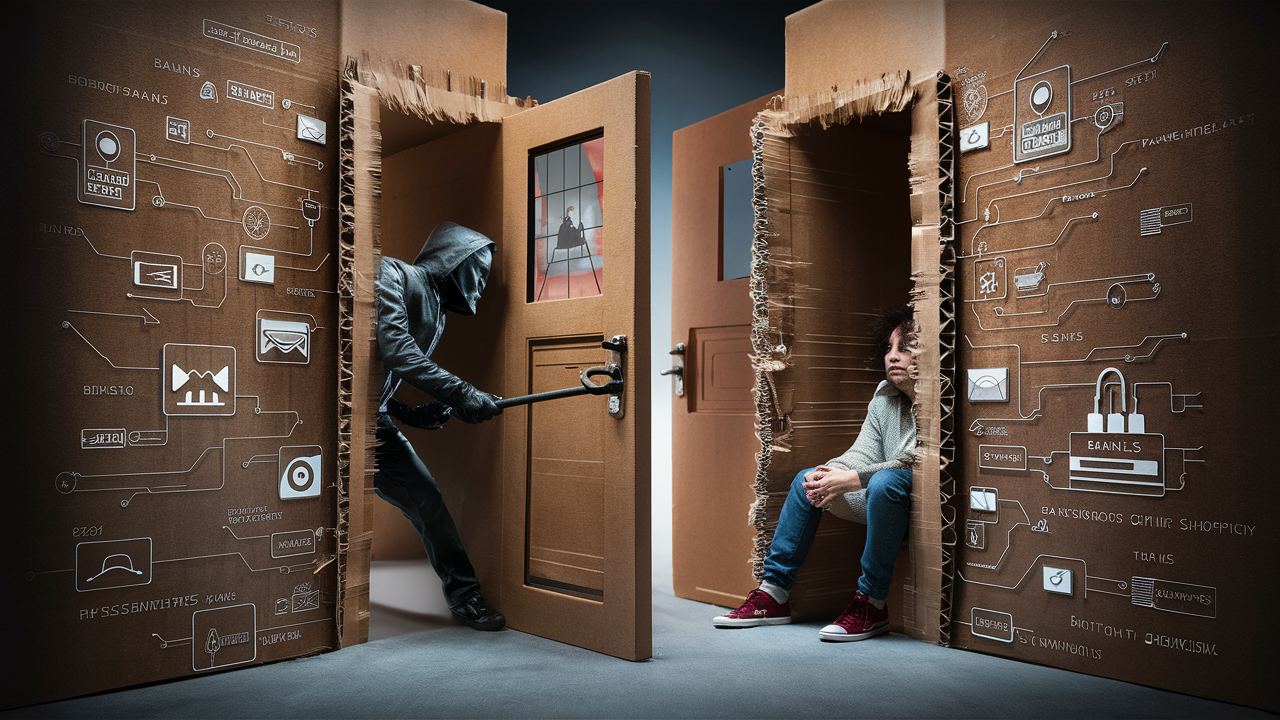The Importance of Strong Passwords: Your Digital Defense in a Connected World

The Importance of Strong Passwords: How to Create and Manage Passwords
Imagine your front door is made of cardboard. Easy to break through, right? Now imagine that cardboard door protects your entire digital life: your bank accounts, emails, social media, and even your online shopping history. That's what a weak password feels like in today's connected world.
Cybersecurity is all about protecting your online information, and strong passwords are your first line of defense. In this article, we'll delve into the importance of strong passwords, how to create them, and some handy tips for managing them all.
Why Strong Passwords Matter
Passwords can be compared to a treasure chest's key. A basic, easily guessed password is similar to a weak password in that anyone could find it and use it to unlock your goods. Robust passwords resemble intricate, high-security keys that are only accessible by their legitimate holder.
Here's why strong passwords matter:
- They prevent unauthorized access: Hackers use automated tools to try millions of password combinations. A strong password makes it incredibly difficult for them to crack into your accounts.
- They protect your identity: If a hacker gains access to your email or social media accounts, they could impersonate you and cause a lot of trouble. A strong password helps keep your identity safe.
- They safeguard your financial information: Many online accounts hold sensitive financial information. A strong password protects your bank accounts, credit cards, and other financial data.
Crafting a Strong Password: Your Secret Recipe
So, how do you cook up a strong password recipe? Here are the key ingredients:
- Length: Aim for at least 12 characters. The longer your password, the harder it is to guess.
- Complexity: Mix it up! Use a combination of uppercase and lowercase letters, numbers, and symbols.
- Uniqueness: Avoid using the same password for multiple accounts. If one account gets compromised, hackers might try the same password on your other accounts.
- Avoid personal information: Don't use your birthday, pet's name, address, or any other information easily found about you online.
Here's an example of a strong password:
!Secr3tP@ssw0rd# (This password is just an example, please don't use this exact one!)
This password is strong because it's long, uses a mix of uppercase and lowercase letters, numbers, and a symbol, and isn't any personal information.
Taming the Password Herd: Management Tips
Creating strong passwords is great, but with so many online accounts, remembering them all can be a challenge. Here are some tips to manage your password herd:
- Password managers: These are secure applications that store all your passwords in one encrypted vault. You only need to remember one master password to access all your other passwords.
- Two-factor authentication (2FA): This adds an extra layer of security by requiring a second verification step, like a code sent to your phone, when logging in.
- Password resets: Most websites allow you to reset your password if you forget it. However, make sure you create a strong new password when resetting.
Here are some additional tips to remember:
- Never share your passwords with anyone.
- Beware of phishing scams. Phishing emails try to trick you into revealing your passwords. Don't click on suspicious links or attachments.
- Update your passwords regularly. Change your passwords every few months, especially for critical accounts like your bank or email.
Frequently Asked Questions (FAQs)
1. Are password managers safe?
Yes, reputable password managers use strong encryption to protect your passwords. However, it's important to choose a trusted password manager with a good security record.
2. What if I forget my master password for a password manager?
Most password managers offer recovery options, such as security questions or backup passwords. However, losing your master password could potentially lock you out of all your accounts, so it's crucial to choose a strong and memorable master password.
3. Are there alternatives to password managers?
If you're uncomfortable using a password manager, you can write down your passwords on paper and store them in a safe place. However, this method can be inconvenient and less secure than a password manager.
4. How strong is my current password?
There are online tools that can help you assess the strength of your passwords. However, it's important to remember that these tools are not foolproof, and it's always best to create strong passwords following the tips above.
Conclusion: Building a Strong Digital Defense
In the digital age, strong passwords are essential for protecting your online accounts and personal information. By understanding the importance of strong passwords, learning how to create them, and knowing how to manage them effectively, you can significantly enhance your cyber security.
Call to Action
Stay tuned to my blog for more information on the importance of strong passwords and how to manage them, along with other cyber security tips, technology news, and advice on writing successful blog posts. Don’t forget to share this article with your friends and family to help them stay safe online. Follow my blog for regular updates and join the conversation on cyber security!
For more detailed information, visit trusted websites like Cybersecurity & Infrastructure Security Agency and Norton.
Thanks for reading, and stay secure!